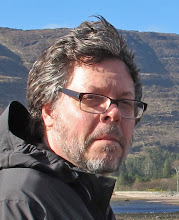Luebo, July 3, 1922
Dear Mother and Daddy:
Here we are back at home again, after an absence of three weeks. While we enjoyed the trip, still it felt good to get back home again--it is needless to expand that subject.
Dorothy has already told you a good deal about our trip, and it may be that we are duplicating some of our subjects, but you will find some subjects different at least.
If one travels a whole day at home, he would probably travel something like 200 miles, and while we were actually a little less than three days from Luebo at the most, still we were then just a little less than 100 miles from here. From Luebo to Ibanche, an old station of ours, it is just about 29 miles, which means a good day of traveling; then Bulape is beyond Ibanche just about the same distance; the direction is a little west of north from Luebo. Then from Bulape to
Muxenge, which is the capital of the Bakuba kingdom, it is 21 miles or about five hours of travel by hammock. The reason I am giving you the miles is because I have a cyclometer on my wheel (I believe I have told you that I use a wheel here, and took it with me on the trip); ordinarily we speak of distances in time, so many hours. Dorothy wrote that we left Luebo on Thursday afternoon and set out to Kampungi, which is about one and a half hours travel by hammock, 8 1/2 miles; Miss McKay accompanied us to Kampungi, and came back to Luebo early the next morning in time for school. This made a little easier trip for us to Ibanche the next day. We reached Ibanche just at noon, rather hot and tired. We stayed at Ibanche from Friday at noon till early Monday morning, when we went on to Bulape. The road from Luebo to Ibanche is quite a good one, being a much travelled highway by both natives and white people; and then there are no long hills, only one medium sized hill just as you reach Ibanche. But after you leave Ibanche, your troubles begin with the hills, for there are quite a number of long hard hills, and some of them rather steep; the fact is, it is nearly all ups and downs. However, one redeeming feature of this part of the trip is that it is nearly all through a beautiful forest, and it is not only pleasant to be in the woods, but it is also much cooler than on the plains; this also makes it much better for the hammock men and porters. Between Ibanche and Bulape, naturally among so many hills, we pass a number of streams. The men enjoy these especially, as they can drink and take a bath.
At Ibanche we find the Bakuba people, who are radically different in many ways from the Baluba and Lulua peoples, in customs, appearance, dress, etc. There are some Baluba at Ibanche, but the majority are Bakuba. Their houses, instead of being the mud houses as we have here, are a smaller and lighter build, being made of the leaves of the palm trees closely woven together. they are made in parts, each wall separate, and can easily be moved in a short time; in fact, whole villages can be moved in one night, the houses being light and easily taken apart: they also make quite a good protection from the weather. very often the Bakuba do some artistic work in these walls, making various figures in weaving them, and they look very attractive. While we were at Muxenge, we stayed in one of these houses. This race has been exceedingly slow to take up the customs of the white man, especially is this true in the matter of dress, for it is very seldom that you find one of them wearing European clothes; you do find them occasionally wearing European cloth (not clothes). but even this is wrapped around them in their ancient Bakuba style. They nearly always dye their cloth red, their dye being made from a dark red wood which they pulverize and mix with water or oil, and which makes a splendid dye. Another time I want to tell you more about what we saw among the Bakuba people, many interesting things. The Bakuba also do quite a bit of iron works; originally they smelted their iron from the ore, making their own tools and weapons.
July 4th--As we have just received word that the mail closes in a few hours, and as we want to be sure and get this letter off to you, I'll have to make the remainder brief.
Dorothy not only enjoyed our trip, but it did her good; she looks better and feels better, and weighs some four pounds more. Some of the traveling was rather hard, as there were a good many hills, like the trip from Ibanche to Bulape. However, Dorothy didn't have to walk very much, and while it was a little tiresome and hot at times, still all this seems to have been a tonic for her. She never became what you call worn out, even after the longest day, and the next day always felt fine. All the missionaries who itinerate say they have better health on the road then they do on their stations. It was a big change, too, and very interesting to her, as you see the same thing here at Luebo and don't know much about what the actual life in the outstations is like.
We will write you more very soon. We had hoped to mail you a letter while we were on our trip, but it was more difficult to do than to resolve, and we never knew about the mail men.
With love to all,
B. M.

No comments:
Post a Comment